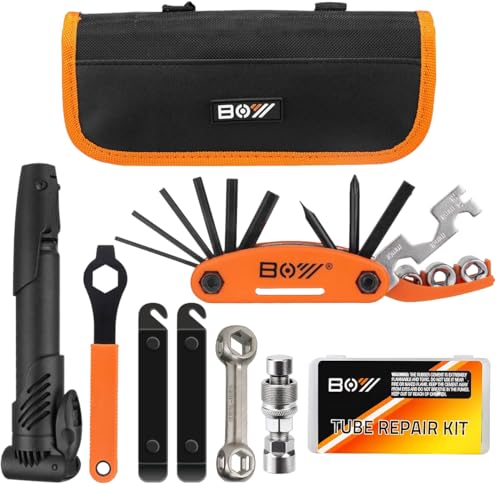Are you a triathlete who loves listening to music while racing? If so, you may be wondering if earphones are allowed during triathlons. The short answer is no, earphones are not allowed during triathlons as it can be a safety hazard and give athletes an unfair advantage. In this article, we will explore the topic of earphones in triathlons, including the benefits, drawbacks, and better alternatives.

Before we dive into the benefits and drawbacks of using earphones during triathlons, let’s first understand what a triathlon is. A triathlon is a multisport race that consists of swimming, cycling, and running, in that order. It is a physically demanding sport that requires endurance, strength, and mental toughness. Triathlons can range from sprint distance (750m swim, 20km bike, 5km run) to Ironman distance (3.8km swim, 180km bike, 42.2km run). Given the nature of the sport, it’s important to stay focused and aware of your surroundings at all times.
Key Takeaways
- Earphones are not allowed during triathlons as they can be a safety hazard and give athletes an unfair advantage.
- The benefits of using earphones during triathlons include increased motivation and distraction from pain and fatigue.
- The drawbacks and risks of using earphones during triathlons include decreased awareness of surroundings, potential injury, and penalties.
Understanding Triathlons and Earphones
https://www.youtube.com/watch?v=KU3SrAggKWE&embed=true

Triathlon Overview
A triathlon is a multi-sport event that includes three continuous and sequential endurance races. These races are swimming, cycling, and running, usually in that order. The sport of triathlon has been growing in popularity over the years, with many people participating in triathlon events around the world. Triathlons can be challenging, and participants need to be well-prepared physically and mentally to complete the race.
Role of Audio Devices in Races
Audio devices, such as earphones or headphones, are becoming increasingly popular among athletes during training and races. However, in triathlon events, the use of audio devices is not allowed. According to rookieroad.com, “headphones, headsets, and other audio devices are not permitted during any triathlon event.” This rule is in place to ensure the safety of all participants. The use of audio devices can distract competitors, which can lead to possible injury and may also result in penalties given by judges.
In addition to safety concerns, the use of audio devices during a triathlon can also have a negative impact on performance. During a race, it is essential to be aware of your surroundings, including other competitors, course conditions, and instructions given by race officials. Wearing earphones or headphones can limit your ability to hear these important cues, which can affect your performance and ultimately your overall race time.
As an alternative to audio devices, many athletes use other methods to stay motivated during a race. Some athletes use visualization techniques, while others use positive self-talk to stay focused and motivated. Additionally, some athletes prefer to race with a partner or a group of friends to stay motivated and engaged throughout the race.
Overall, while the use of audio devices may seem like a good idea during a triathlon, it is not allowed for safety reasons and can negatively impact your performance. Instead, focus on other methods to stay motivated and engaged during the race, such as visualization techniques, positive self-talk, and racing with a partner or group of friends.
Benefits of Using Earphones During Triathlons
https://www.youtube.com/watch?v=K8OUmrY8Cd0&embed=true
Triathlons are grueling events that require a great deal of physical and mental endurance. One way to help boost your performance is to use earphones during the race. Here are some benefits of using earphones during triathlons:
Motivation Through Music
Music has a powerful effect on the mind and can help motivate you to push through the pain and fatigue of a triathlon. Listening to your favorite songs can help you maintain a positive attitude and keep you focused on your goals. Studies have shown that listening to music can also help reduce perceived exertion, meaning you may not feel as tired as you actually are.
Pacing with Audio Cues
In addition to motivation, earphones can also provide audio cues to help you maintain a consistent pace throughout the race. Some earphones come with features like cadence sensors that can help you match your stride to the beat of your favorite song. This can help you maintain a consistent rhythm and avoid overexertion, which can lead to early fatigue.
Using earphones during a triathlon can be a great way to boost your performance, but it’s important to remember that not all races allow them. Be sure to check the rules and regulations of your specific event before using earphones. Additionally, it’s important to be aware of your surroundings and to keep the volume at a safe level so that you can hear any important announcements or warnings from race officials.
Drawbacks and Risks
https://www.youtube.com/watch?v=evnSYl_5pG4&embed=true
When it comes to using earphones in triathlons, there are several drawbacks and risks that you should keep in mind. In this section, we will discuss some of these concerns in more detail.
Safety Concerns
One of the most significant concerns with using earphones during a triathlon is the safety hazard they can pose. Wearing earphones can make it difficult to hear what’s going on around you, such as other competitors, race officials, or even emergency vehicles. This lack of awareness can put you and others at risk of injury or accidents.
Regulations and Disqualification Risks
It’s worth noting that the use of earphones is typically banned in triathlons, and violating this rule can result in disqualification or other penalties. As such, if you’re caught wearing earphones during a race, you risk being disqualified or facing other consequences. It’s essential to check the race rules beforehand to ensure you’re not breaking any equipment infractions.
Impact on Awareness and Concentration
Another potential drawback of using earphones during a triathlon is the impact they can have on your awareness and concentration. Listening to music or other audio can be a distraction, making it harder to focus on the task at hand. This distraction can lead to slower times or even accidents, especially if you’re not paying attention to your surroundings.
In conclusion, while using earphones during a triathlon might seem like a good idea, it’s generally not worth the risks. The safety hazards, disqualification risks, and impact on awareness and concentration outweigh any potential benefits. Instead, focus on training your body and mind to perform at your best without relying on external stimuli.
Alternatives to Earphones in Triathlons
https://www.youtube.com/watch?v=ifhxImyw_vM&embed=true
If you’re looking for alternatives to earphones during triathlons, there are a few options to consider. Here are two alternatives to earphones that you can try:
Bone-Conduction Headphones
« Are Bikes Provided in Triathlon Races? Your Options Explained
Are Ready Made Energy Gels Better Than Natural Substitutes like Honey, Maple Syrup, and Dates? »
Bone-conduction technology has been around for a while, and it’s becoming more popular as an alternative to traditional earphones. These headphones work by sending sound vibrations through your cheekbones to your inner ear, bypassing the eardrum. This means that you can still hear your surroundings while listening to music or audio cues.
One option to consider is the Aftershokz Xtrainerz. These headphones are designed for swimming and are completely waterproof. They use bone-conduction technology to deliver sound, so you can still hear your surroundings while swimming. Another option is the Aftershokz Trekz Air, which is designed for running and cycling. These headphones are lightweight and comfortable, and they allow you to hear your surroundings while still enjoying your music.
Training Without Music
Another alternative to earphones is to train without music. While it may take some getting used to, training without music can help you focus on your breathing, form, and pacing. It can also help you become more aware of your surroundings and the other athletes around you.
If you’re used to training with music, try going for a few runs or rides without it. Pay attention to your breathing and your form, and try to stay present in the moment. You may find that you enjoy the peace and quiet of training without music, and you may even perform better without the distraction of music.
Overall, there are a few alternatives to earphones that you can try during triathlons. Whether you opt for bone-conduction headphones or choose to train without music, it’s important to stay safe and aware of your surroundings during the race.
Making the Right Choice for Your Race

When it comes to selecting the right equipment for your triathlon race, choosing the right headphones can be a challenging decision. This section will help you make an informed decision by providing you with the necessary information to assess your needs and preferences.
Understanding Race Organizer Policies
Before you decide to use headphones or earphones during a race, it is important to understand the policies of the race organizers. According to the UKA Rules of Competition, the use of headphones or any other audio device is not permitted during the race. The rule is in place to ensure the safety of all participants and to prevent any possible distractions that can lead to accidents.
In addition to the UKA rules, some race organizers may have their own policies regarding the use of headphones. It is important to check with the race officials before the race day to avoid any penalties or disqualifications.
Assessing Personal Needs and Preferences
When deciding whether or not to use headphones during a race, you need to assess your personal needs and preferences. While some athletes prefer to race without any distractions, others find that music can help them stay motivated and focused.
If you decide to use headphones during the race, it is important to choose the right type of headphones. Wired headphones can be cumbersome and can get in the way during the race. Wireless headphones, on the other hand, can be more comfortable and convenient to use.
It is also important to choose headphones that are designed for sports activities. These headphones are designed to stay in place during intense physical activities and are sweat-resistant.
In summary, before deciding to use headphones during a triathlon race, it is important to understand the policies of the race organizers and assess your personal needs and preferences. Choosing the right type of headphones can make a big difference in your race day experience.
Frequently Asked Questions
https://www.youtube.com/watch?v=13Bjb2dsPxk&embed=true
What are the benefits of using bone conduction headphones for water sports?
Bone conduction headphones are an excellent alternative to traditional headphones for water sports. They work by transmitting sound waves through the bones of your skull, allowing you to hear music or other audio cues without blocking out the sounds of your surroundings. This is particularly useful when swimming in open water, where you need to be aware of your surroundings to stay safe. Bone conduction headphones are also a great option for people who have trouble keeping traditional earbuds in place during water-based activities.
How do waterproof headphones function and are they effective for triathlons?
Waterproof headphones are designed to withstand exposure to water and sweat, making them an ideal choice for triathlons. They work by using a special coating or sealant to protect the internal components from water damage. Some waterproof headphones also come with additional features, such as noise cancellation or bone conduction technology, to enhance your listening experience.
What are some recommended headphones for triathletes who train in various environments?
There are many headphones on the market that are specifically designed for use during physical activity. Some popular options for triathletes include the Aftershokz Aeropex, the Jaybird Vista, and the Bose SoundSport Wireless. When choosing headphones, it’s important to look for features such as water resistance, secure fit, and long battery life.
Why is it generally prohibited to use headphones during triathlon events?
The use of headphones is generally prohibited during triathlon events for safety reasons. Triathlons take place in a variety of environments, including open water, busy roads, and crowded running paths. The use of headphones can make it difficult for athletes to hear important audio cues, such as approaching traffic or instructions from race officials. Additionally, headphones can be a distraction and increase the risk of accidents or injuries.
What are the potential disadvantages or risks of using headphones while engaging in water sports?
While headphones can enhance your listening experience during water sports, they can also pose some risks. One potential disadvantage is that they can block out important sounds, such as approaching boats or other swimmers. Additionally, if headphones become dislodged during a swim, they can be difficult to retrieve and may pose a safety hazard.
How do the advantages of using headphones compare to earphones for outdoor and water-based activities?
Both headphones and earphones have their advantages and disadvantages when it comes to outdoor and water-based activities. Headphones are generally more secure and less likely to fall out during physical activity, making them a better choice for activities such as running or cycling. Earphones, on the other hand, are more discreet and can be more comfortable for extended periods of use. Ultimately, the choice between headphones and earphones comes down to personal preference and the specific activity you’ll be engaging in.










